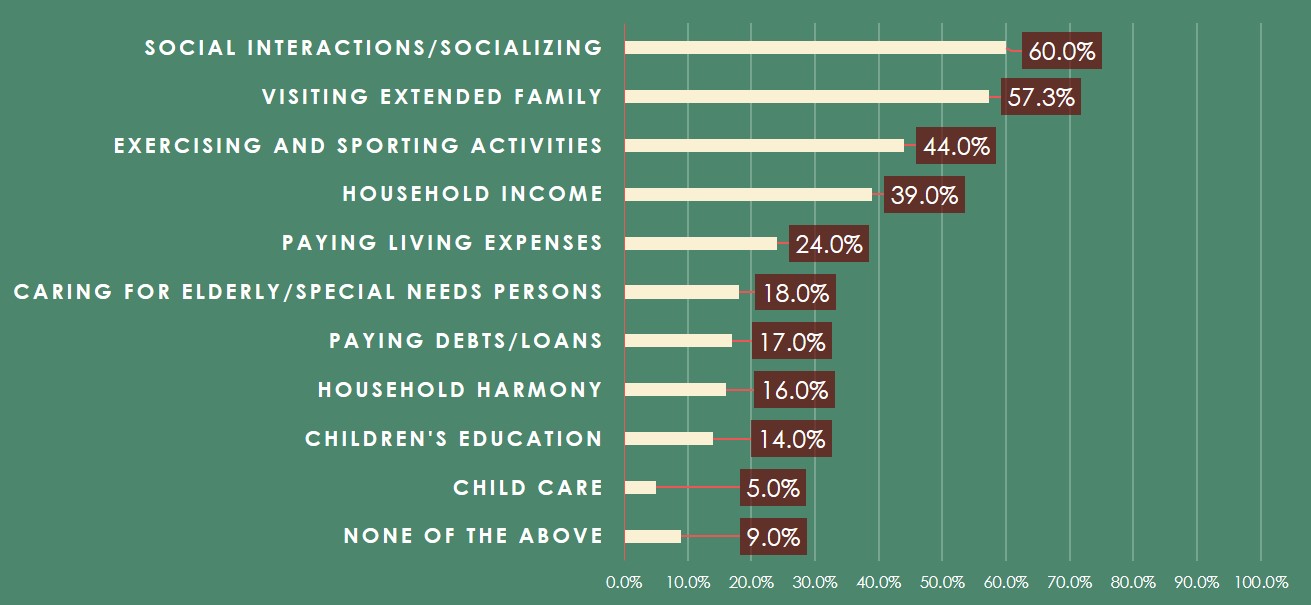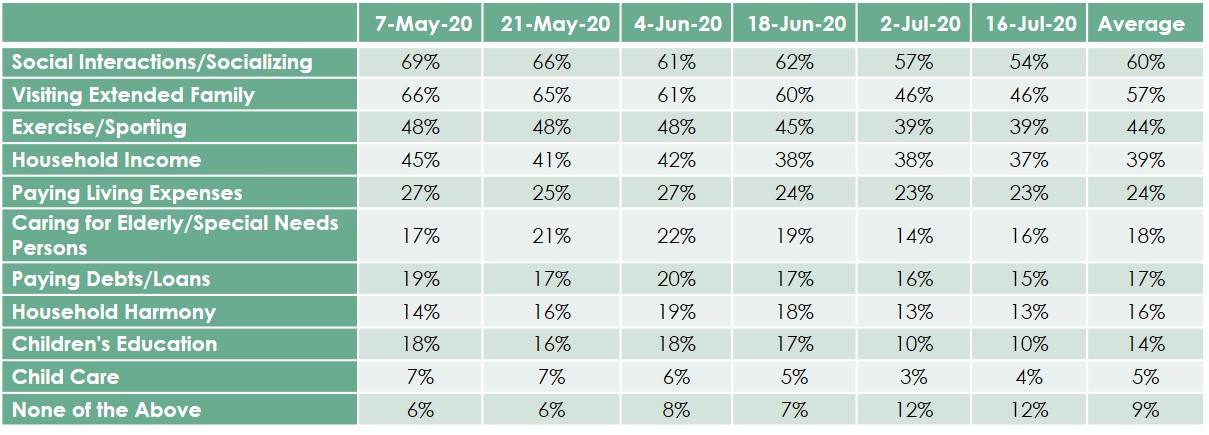Authors: Patrick Daly, Caroline Brassard, Jamie McCaughey Reuben Ng, Laavanya Kathiravelu, and Benjamin Horton
The Singapore government instituted a set of "Circuit Breaker" (CB) measures in April 2020 to combat the Covid-19 pandemic. These included restricting international travel, closing non-essential businesses, telecommuting, home-based-learning, wearing faces masks in public spaces, temperature screening, rigorous contract tracing, and isolating infected and exposed persons. The Covid-19 CB measures have helped the government control Covid-19 transmission in Singapore but have disrupted economic and social life.
Researchers from the Earth Observatory of Singapore, Nanyang Technological University, the Lee Kuan Yew School of Public Policy, and ETH Zurich partnered with Yougov to conduct a representative survey of Singaporean citizens and permanent residents to gauge levels of agreement with the CB measures and weigh the perceived trade-offs between the actual disruptions of the CB period and the possible burdens of contracting Covid-19. We conducted bi-monthly survey waves between 7 May and 16 July 2020 on over a thousand Singaporean citizens and permanent residents. The data provides an in-depth look at the social and economic impacts of the Covid-19 CB period. In this brief, we focus on the social impacts of the circuit breaker measures.
When asked respondents to rank the aspects of their lives disrupted by the circuit breaker measures, the top three disruptions all social in nature, namely: socialising, visiting relatives, and sports and exercise (Table 1, Figure 1).
Survey Results on Social Disruptions
Our data suggests that social disruptions were more wide-spread than economic disruptions across the population (please note that we are not weighing the relative impact of social versus economic disruptions). More than half the population reported that the CB limited their participation in social activities and visiting family/relatives, while 44% reported disruptions to exercise/sporting activities. An average of 16% of respondents reported that their household/family harmony was disrupted by the CB.
Given that the CB measures were designed to minimise interpersonal contact by limiting travel, family visits, closing public spaces, and stay-at-home policies, this is not surprising. What is surprising is that the levels of reported social disruptions were generally not significantly different based on most demographic categories such as gender, geography, race, income level, or whether households have children at home.
However, our data showed several exceptions where social disruptions seem to be more or less pronounced by demographic categories:
- People who were not married and/or retired persons were significantly more likely to report that visiting family and relatives has been disrupted.
- People over the age of 35 were slightly more likely to report disruptions to visiting family than people under 35.
- Respondents over 55 years old were slightly more likely to report disruptions to exercising and family visits than all younger demographics. People over 55 also reported lower levels of disruption to family harmony than all other age groups.
- Respondents with higher levels of education (bachelors and advanced degrees) were more likely to report disruption to social activities, exercise, and visiting family.
- Unemployed respondents reported higher levels of disruption to family harmony than other categories of employment.
Consequences on Households
Additionally, we found that the circuit breaker disrupted aspects of household care such as children's education, care for the elderly, and care for persons with special needs. Given the shift to home-based learning, we found that a relatively modest 14% of households expressed that their child's education was being disrupted (Figure 1, Table 1) but with 33% reporting concerns about the impact of the pandemic on their children's education. Less than 5% reported disruptions to childcare. Eighteen percent of respondents reported disruptions in their ability to provide adequate care for an elderly family member or family member with special needs. Age, race, education level did not affect reported disruptions caring for elderly family members and/or family members with special needs. There was no notable difference amongst all demographic categories for disruptions to child care. Education level, gender, and employment status were not notably related with reported concerns about children's education.

Figure 1: Average percentages of aggregate disruptions caused by the CB

Table 1: Aggregate reported disruptions caused by the CB for each survey wave.
The social consequences of the lockdown period were widely felt and had real and potentially lasting impacts on the well-being of all segments of society regardless of income, race, gender, age, etc. Further research is needed to evaluate the extent to which the extended period of social disruption might have caused psycho-social harm, emotional distress, and domestic tension, and whether the stress of Covid-19 and the CB might register as trauma that might need treatment.
This research is supported by the National Research Foundation Singapore, and the Singapore Ministry of Education under the Research Centres of Excellence initiative. This work comprises Earth Observatory of Singapore contribution no. 384. This research is approved by the NTU IRB board, IRB-2020-05-013-01.
(Photo credit: lucas law)
Read more on other findings by the team: